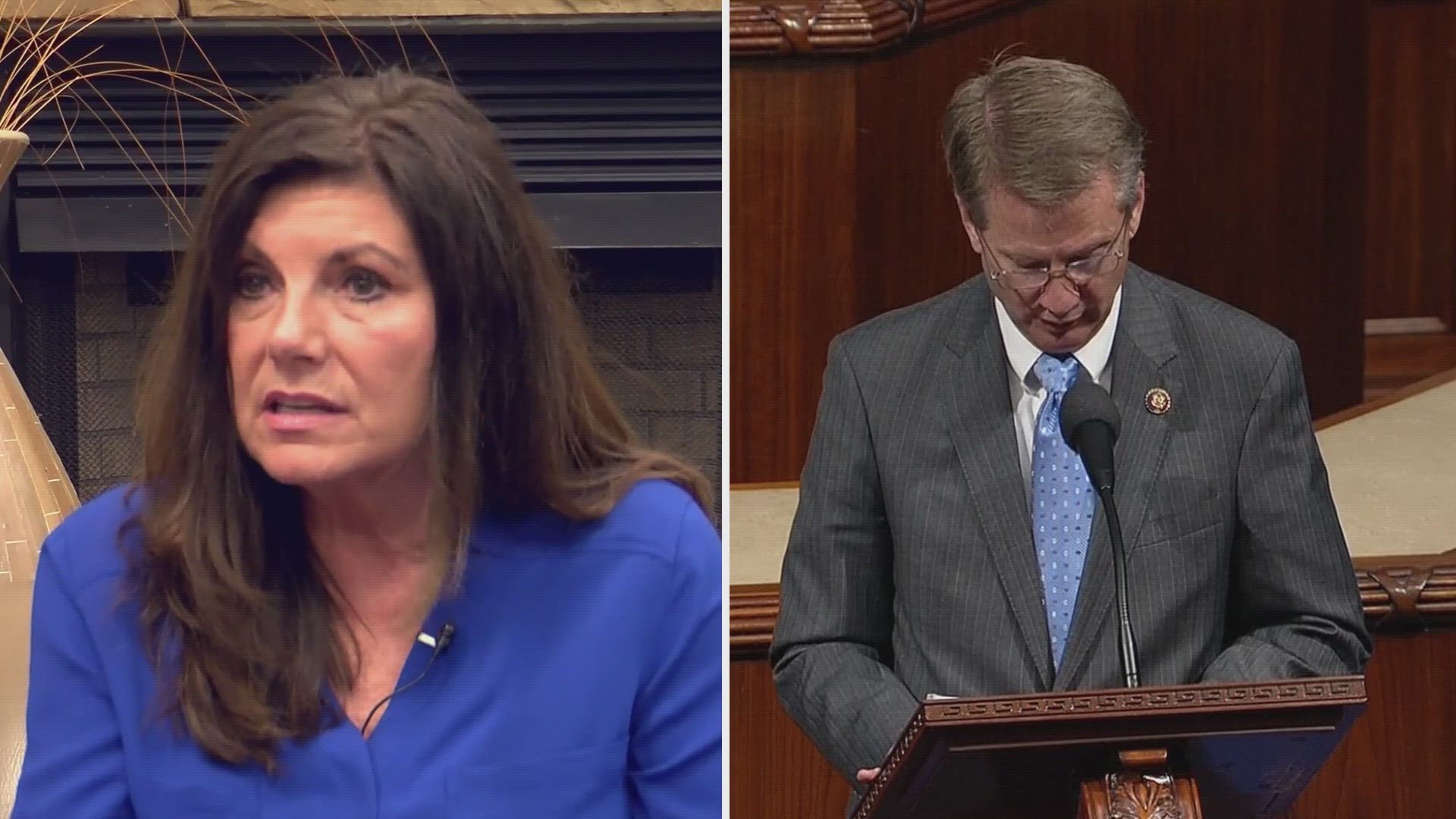KNOXVILLE, Tenn. — East Tennessee Congressional Representatives Tim Burchett (R - Knox County) and Diana Harshbarger (R - Kingsport) voted against the latest spending package to fund the government through the rest of the fiscal year.
Both, however, asked for millions in funding for projects in their districts and received it, according to the House Appropriations Committee.
"I don't know how you do explain it in any logical manner," said Victor Ashe, the former Knoxville Mayor and Ambassador to Poland. "On the one hand, you're telling people privately you got the money for them. On the other hand, you're voting against it."
After each of the votes, Burchett released statements saying he didn't agree with spending trillions when the U.S. is nearly $35 trillion in debt already.
In Congress, members can apply for funding for "community projects" in their districts. U.S. House Appropriations Committee records show Burchett's district received more than $12 million in federal funding for those projects. That data shows Harshbarger's district received more than $10 million.
Burchett's list of funded projects includes a grant for Lincoln Memorial University, Maynardville drainage and sewer improvements and Habitat for Humanity affordable housing projects.
The federal government funded upgrades for the Sevierville Police Department and Sevier County 911 in Harshbarger's district.
Rep. Burchett's office noted the projects funded in his district accounted for less than 0.001% of the funding passed for this fiscal year.
"At some point, people will catch on and it will come back to bite you," Ashe said. "The first people to catch on are other members of Congress who wonder why you're doing this."
Ashe warned East Tennessee may lose out on more funding if representatives continue to vote against funding packages with their projects included.
"The people who sponsored the bill at some point will decide, 'Why do we need to give you any money when you're going to vote against it anyway? Let's send it to members of Congress who do vote for it.' That's the risk," Ashe said.
Harshbarger's office did not respond to multiple requests for comment for this story. Burchett's communications director said he was not available for an interview, but did provide written answers to WBIR's questions. They are below, in full.
- Why did Rep. Burchett vote against the spending bills even though they included funding for community projects?
Rep. Burchett’s full statement for why he voted against the $1.2 trillion bill is available here. His statement on the $467.5 billion minibus spending bill is available here. - Is Rep. Burchett worried his “no” votes will reduce the amount of money his district receives in funding for those community projects?
Rep. Burchett believes there are plenty of ways the spending packages could have been reduced to a more responsible level that would not involve cutting the funding for East Tennessee’s projects. - Rep. Burchett has talked about needing to reduce federal spending and passing a budget. What steps would Rep. Burchett like to see to reduce non-essential federal spending?
Rep. Burchett would like to see more accountability in the way the Pentagon spends its billions of dollars, or else face cuts. He would like to see more funding to protect the border and less money to give illegal immigrants free shelter and transportation into the United States, as well as cuts to a bunch of red tape and bureaucracy in every federal agency to make them more efficient. - Will Rep. Burchett vote to remove Speaker Johnson after the latest vote? If not, why is this situation different from the situation with the former speaker?
Rep. Burchett has said he does not intend to remove Speaker Johnson because Speaker Johnson is being more open and transparent with where this money is going and how he makes these deals than the previous Speaker.

